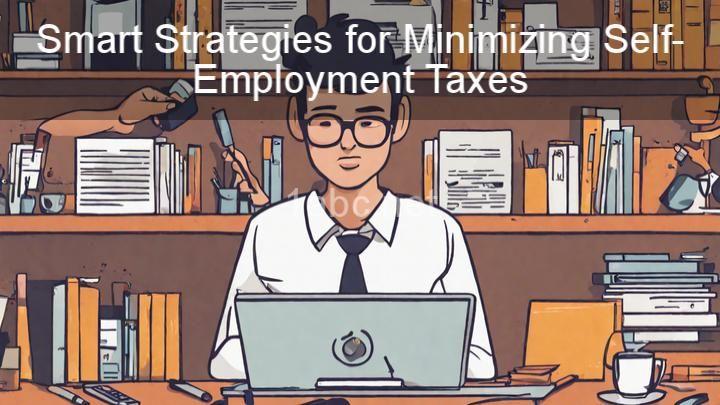The Hidden Tax Benefits of Financing Education: Uncovering Savings Opportunities

Introduction:
Education is undoubtedly a valuable investment in one's future. However, the rising cost of education can be overwhelming for many individuals and families. The good news is that there are hidden tax benefits and savings opportunities that can help alleviate some of the financial burdens associated with financing education. In this blog post, we will explore these benefits and provide you with valuable insights on how to take advantage of them.
Section 1: Deducting Student Loan Interest
When it comes to financing education, student loans are often a necessary evil. However, there is a silver lining – you may be eligible to deduct the interest you pay on your student loans. This deduction can result in significant tax savings.
To qualify for this deduction, there are a few requirements you must meet. First, you must be legally obligated to pay the interest on the loan. Secondly, the loan must have been taken out solely for educational purposes. Lastly, your modified adjusted gross income (MAGI) must fall within certain limits.
It's important to note that there are limitations to this deduction. For instance, if your MAGI exceeds the allowed limit, the deduction may be reduced or completely phased out. Additionally, the maximum amount of interest you can deduct in a tax year is capped at $2,500.
Let's break it down with an example. Imagine you paid $3,000 in student loan interest over the course of a year, and you meet all the requirements for the deduction. If your MAGI falls within the allowed limit, you can deduct $2,500 from your taxable income, resulting in a lower tax liability.
Section 2: Education Tax Credits
Education tax credits are another valuable tool for reducing your tax liability. Two common credits that you may be eligible for are the Lifetime Learning Credit and the American Opportunity Credit.
The Lifetime Learning Credit allows you to claim a credit of up to $2,000 for qualified education expenses, such as tuition and fees. Unlike the student loan interest deduction, this credit is not limited to just the interest paid on student loans. However, it's important to note that the credit amount is based on a percentage of your qualified expenses and is subject to income limitations.
On the other hand, the American Opportunity Credit offers even greater savings. This credit allows you to claim up to $2,500 per eligible student for the first four years of post-secondary education. It covers not only tuition and fees but also required course materials. Similar to the Lifetime Learning Credit, income limitations apply for this credit as well.
To maximize these credits, it's important to keep track of all your education-related expenses and retain any necessary documentation, such as receipts and statements. By doing so, you can ensure that you claim the credits you are eligible for and reduce your tax liability.
Section 3: Employer Tuition Assistance Programs
Many employers offer tuition assistance programs as a valuable employee benefit. Not only do these programs help employees advance their education, but they also come with hidden tax benefits.
Under current tax laws, employers can provide tax-free educational assistance of up to $5,250 per year to their employees. This means that any educational expenses covered by your employer, up to this limit, are not considered taxable income for you. This can result in substantial tax savings.
To take full advantage of employer tuition assistance programs, it's important to understand the specific requirements and limitations set by your employer. Some employers may require you to maintain a certain grade point average or commit to working for the company for a certain period of time after completing your education. By familiarizing yourself with these details, you can make informed decisions and maximize the benefits offered by your employer.
Section 4: Education Savings Accounts (ESAs)
Education Savings Accounts (ESAs) are another powerful tool for financing education while enjoying tax benefits. Two common types of ESAs are 529 plans and Coverdell ESAs.
529 plans are state-sponsored investment accounts that allow you to save for qualified education expenses, such as tuition, fees, books, and supplies. Contributions to these accounts grow tax-free, and withdrawals for qualified education expenses are also tax-free. Furthermore, some states offer additional tax benefits, such as deductions or credits, for contributing to a 529 plan.
Coverdell ESAs, on the other hand, offer similar tax benefits but have a lower contribution limit. Like 529 plans, contributions to Coverdell ESAs grow tax-free and withdrawals for qualified education expenses are tax-free.
When choosing the right ESA for you, it's important to consider factors such as investment options, fees, and any specific state tax benefits. By carefully evaluating your options, you can select an ESA that aligns with your financial goals and offers the greatest tax advantages.
Conclusion:
Education may come with a hefty price tag, but it also comes with hidden tax benefits and savings opportunities. By deducting student loan interest, maximizing education tax credits, taking advantage of employer tuition assistance programs, and utilizing education savings accounts, you can significantly reduce your tax liability and save money.
While this blog post provides general information and insights, it's important to consult with a tax professional or financial advisor to understand how these benefits specifically apply to your situation. By taking control of your finances and exploring these opportunities, you can pursue your educational goals without breaking the bank.
We hope you found this blog post helpful in uncovering the hidden tax benefits of financing education. If you have any further questions or need additional guidance, feel free to reach out to us. Happy saving!
FREQUENTLY ASKED QUESTIONS
What is The Hidden Tax Benefits of Financing Education?
The hidden tax benefits of financing education refer to the various tax advantages that individuals can take advantage of when funding their education. These benefits can help reduce the overall costs of education and make it more affordable. Some of the common tax benefits include:
-
Student Loan Interest Deduction: Individuals can deduct up to $2,500 per year in interest paid on qualifying student loans. This deduction can help lower the taxable income, resulting in a reduced tax liability.
-
Education Tax Credits: There are two main education tax credits available - the American Opportunity Credit and the Lifetime Learning Credit. These credits provide a dollar-for-dollar reduction in the amount of tax owed. The American Opportunity Credit offers up to $2,500 per student for qualified education expenses, while the Lifetime Learning Credit offers a credit of up to $2,000 per tax return.
-
Tax-Free Savings Plans: Tax-advantaged savings plans, such as 529 plans or Coverdell Education Savings Accounts (ESA), allow individuals to save for education expenses while enjoying tax-free growth on their contributions. Withdrawals from these accounts for qualified education expenses are also tax-free.
-
Employer Education Assistance Programs: Some employers offer education assistance programs to their employees. Under these programs, the employer may provide tax-free educational assistance up to a certain amount per year.
It's important to note that the eligibility and specific details of these tax benefits can vary, so it's recommended to consult with a tax professional or refer to the IRS guidelines for more information.
How can this guide help me save money?
This guide can help you save money by providing tips and strategies on how to be more frugal and make smarter financial decisions. It may offer advice on budgeting, cutting expenses, finding deals and discounts, saving for the future, and avoiding unnecessary expenses. By following the recommendations in this guide, you can gain a better understanding of how to manage your finances and make your money go further.
Who can benefit from this guide?
This guide can benefit anyone who is looking for support or assistance in various topics. Whether you are a student studying for exams, a professional seeking guidance in your work, or someone who just wants to learn and explore new topics, this guide is designed to help you. It covers a wide range of subjects and provides information and support on each topic.
What specific tax benefits are covered in this guide?
This guide covers various tax benefits that individuals may be eligible for. Some of the specific tax benefits covered include:
- Earned Income Tax Credit (EITC)
- Child Tax Credit
- Child and Dependent Care Credit
- Education-related tax credits, such as the American Opportunity Credit and Lifetime Learning Credit
- Retirement savings contributions credit (Saver's Credit)
- Adoption tax credit
- Energy-efficient home improvement tax credits
- Home mortgage interest deduction
- Medical expense deduction
- State and local tax deduction
- Charitable contributions deduction
- Business-related deductions and credits, such as those for self-employed individuals or small business owners
It's important to note that tax laws are subject to change, so it's always a good idea to consult with a tax professional or refer to the official IRS website for the most up-to-date information on tax benefits and deductions.




